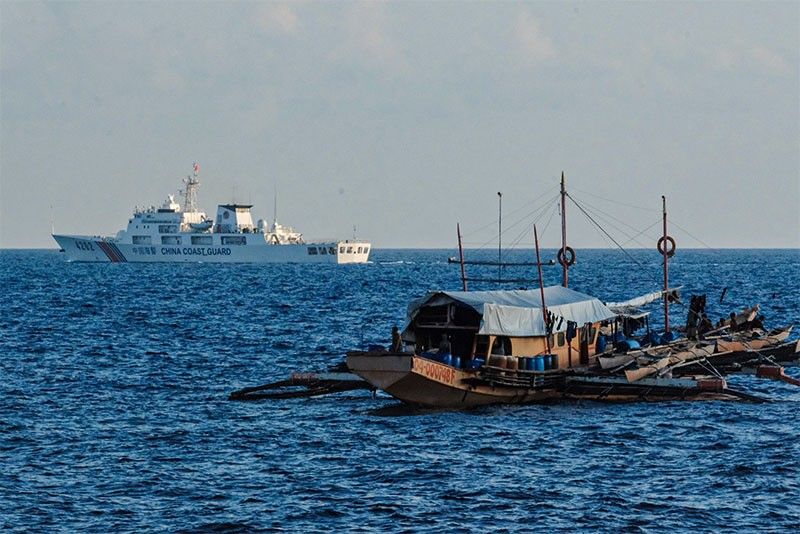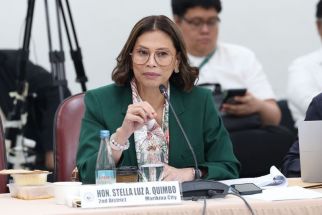West Philippine Sea dispute discussed at joint peace and order meeting

MANILA, Philippines — China’s activities seen to “jeopardize” the security of the country’s borders were among the key security issues discussed yesterday during the first ever joint national peace and order council and regional peace and order council meeting at Malacañang.
President Marcos presided over the meeting, which tackled national security concerns such as the West Philippine Sea dispute, geopolitical issues, communist insurgency, cybersecurity and the drug problem.
“China’s continuous activities in the WPS (West Philippine Sea) jeopardize the security of the Philippine borders through the harassment and obstruction of Philippine naval operations, harassment of Filipino fisherfolk, and the use of engagements as warfare tactics to influence Filipinos,” the Presidential Communications Office (PCO) said in a statement.
China, whose expansive claim in the West Philippine Sea was voided by a Hague-based arbitral tribunal in 2016, has been harassing Filipino fishing vessels and resupply missions in areas within the Philippines’ exclusive economic zone.
In March, Marcos said the Philippines would come up with a “response and counter measure package that is proportionate, deliberate, and reasonable in the face of the open, unabating and illegal, coercive, aggressive and dangerous attacks by agents of the China Coast Guard and the Chinese maritime militia.”
Also discussed were the protracted wars and global issues, which, according to the National Security Council, have “serious and detrimental effects” on the country particularly on the safety of overseas Filipinos and global oil prices.
Marcos also reminded police officials to build their credibility by being part of the community. He called on law enforcers “to be on the beat, to know the people, and to understand what’s happening.”
Despite the high-tech equipment being used in the crackdown against illegal drugs, the police must also make their presence on the ground felt, the President said.
Probe deepfake audio
Meanwhile, Justice Secretary Jesus Crispin Remulla directed the National Bureau of Investigation (NBI) to conduct a probe into the “audio deepfake” that made it appear that President Marcos ordered the military “to act against” China.
The directive comes after the PCO and the Department of Information and Communications Technology (DICT) reported an audio recording that was allegedly manipulated and edited through artificial intelligence (AI).
“Hold accountable the personalities behind this deceiving act, make the investigation swift and comprehensive to ascertain the truth,” Remulla said in a statement on April 25, addressing the NBI. “I am instructing you to file the necessary legal action, if warranted, against those behind this fake news.”
The PCO said Marcos has no such audio recording and issued no such directive to the Armed Forces of the Philippines. It also asked the public to be proactive in exposing and fighting misinformation, disinformation and malinformation.
Audio deepfakes are a type of AI technology that can manipulate audio to sound like a specific person saying things they never did.
Philippine National Police cybercrime investigators have started a probe to unmask the people behind the deepfake audio. – Daphne Galvez, Emmanuel Tupas
- Latest
- Trending




























